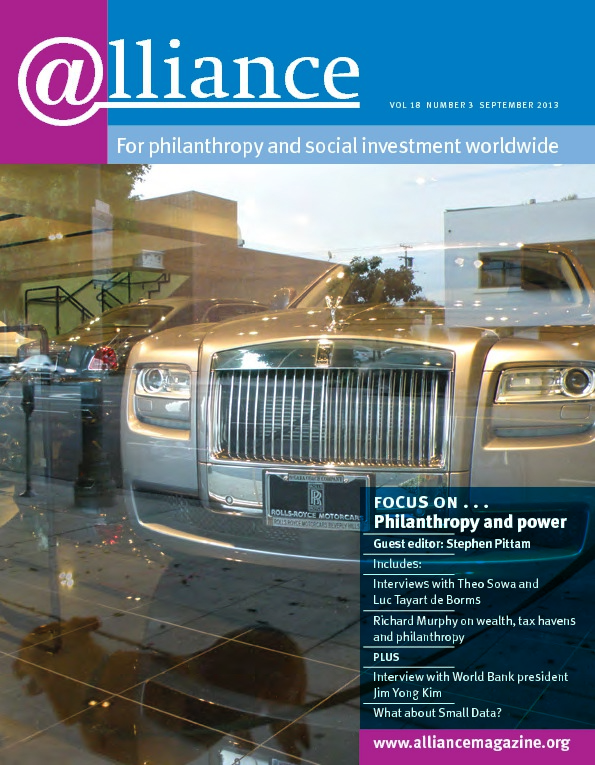‘As more lives and communities are destroyed by the system that creates vast amounts of wealth for the few, the more heroic it sounds to “give back.” It’s what I would call “conscience laundering” … But this just keeps the existing structure of inequality in place. The rich sleep better at night, while others get just enough to keep the pot from boiling over.’
Who is this writing? Michael Edwards perhaps? Or Rick Cohen from the Nonprofit Quarterly? Or Stephen Pittam, guest editor for this issue? No, this is Peter Buffett, son of Warren and chairman of the NoVo Foundation, writing in a much discussed op-ed for the New York Times on 26 July 2013.
Peter Buffett questions both the way wealth is created and the ‘giving back’ that does nothing to address the underlying structure of inequality. Where does this leave him and his foundation? ‘My wife and I know we don’t have the answers,’ he says, ‘but we do know how to listen. As we learn, we will continue to support conditions for systemic change.’
Many who work in philanthropy feel it is churlish to raise too many questions about what the rich do with their philanthropic money. They give it away voluntarily; it is surely up to them what they do with it – and by implication we should all be grateful. In our society money brings power, and the power of philanthropy is just another aspect of that.
But others, whether they are the owners of wealth like Peter Buffett or the staff of endowed foundations, feel uneasy about the power they hold, as expressed so well by Stephen Pittam in his article. There is no getting away from the fact that money confers power, so, as Theo Sowa succinctly puts it, ‘We need to know what power we have and exercise it responsibly.’ Many of the articles in the special feature look at how to use power well, including a variety of approaches to ‘sharing power’ or building the power of others alongside that of the donor. Recognizing the limitations of the power of philanthropy, and that there are things that must be done by others such as the state and civil society, is also crucial.
One consequence of the power of philanthropy is that it is almost always the donors/foundations who address the issue. For the people most affected, those who benefit from philanthropy, there is too much to lose from speaking out openly. Alliance rarely includes articles written by grantees. So I’d like to express particular appreciation for Richard Murphy’s thought-provoking article on philanthropy and tax and the use of tax havens in wealth accumulation. I look forward to hearing readers’ responses to this and other articles.






Comments (0)